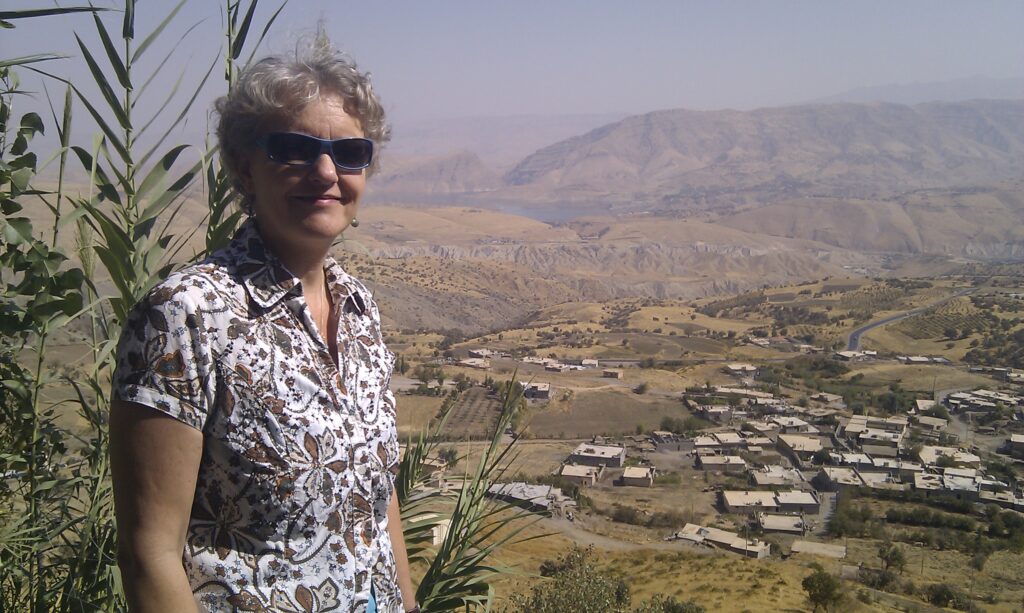For over a decade, the Kurdistan Region of Iraq was my home.
When I went to live in Kurdistan in 2008, it was to set up a media centre, hoping to educate journalists. The idea behind it was, that journalists are an important part of a developing democracy, but that they can only do their job well if they have the right tools. For five years, I led the Independent Media Centre in Kurdistan (IMCK). Economically, Kurdistan was booming. But the democratic development lagged behind, and the press was hardly allowed to play its role.
Was I disappointed? Absolutely, but also with myself for having had these high hopes. Democracy is a long process. And even in Western countries, where we have gone through that process of centuries, we still have so many things to improve.
I had settled in Sulaymaniya, the cultural capital of Kurdistan. The most rebellious city of the region and relatively freer than the more conservative political capital Erbil. Apart from the continuous lack of water and electricity, I loved it. The easy living, adapting your life to the climate, where you do not go out when the sun is too hot or when it rains (funny for someone from a wet country like the Netherlands; our lives would stop if we would abide by that rule). I loved the picnics in the stunningly beautiful nature with my staff, the sharing of a water pipe, the car drives through the beautiful mountains. All this eventually ended up in my novels in some way.
Erbil
Five years later, after leaving my post as the director of the IMCK, I moved to Erbil with my two cats. And started working full time as a correspondent. What a timing, for not long after, the terror group ISIS raised its ugly head, and its stampede through the country would keep me busy for years.
From my former Moroccan husband, I already had gleaned a great deal of knowledge about the radical Islam, and for years, I had followed the movement of Al Qaeda and groups related to it. But with ISIS, the Iraqi Sunnis who had lost all influence when Saddam was toppled, were hoping for a new lease on power. They thought to be part of a Sunni Revolution. Only when they understood the darkness of what ISIS was about, had many admitted their mistake. But by then, they were caught up in the occupation of a third of Iraq and could not get out.
I am not a war correspondent, but with ISIS and the battle to get rid of the group I ended up very near to being one. I drew the line at the instances when I would need a helmet and bulletproof vest. Apart from that, I did the reporting the job asked from me.
And every time I sat down to listen, I found that it was harder to write what they told me
They were hard years, perhaps the hardest in my life. Because of the cruelties, of the power play, and of the way ISIS tried to bring Iraq back to darkness of Quranic times. Because of the way thousands of people were killed. And thousands of women and children were kidnapped to become sex slaves. I collected the stories of those who escaped. But every next time I sat down to listen to these survivors, I found that it was harder to write down what they told me.
At the same time, writing also kept me sane. Books about ISIS, and about the perpetrators and victims under the women (The War of ISIS, Slaves Wives and Brides and Women survive ISIS). And then, when I had left Iraq, I was for the most part able to let go of the pain I had collected in those years when I wrote The Good Terrorist. The years of listening to the fears, and to the stories of violence and escape come together in that book.
Jewish heritage
Yet Kurdistan for me still is a happy place. Here I started my search for the lost Jewish heritage, and stumbled on the ruins of the synagogue in Al Qosh (that since has been beautifully reconstructed). I found a hidden Jewish family, who still spoke the old Aramean language of the Jews of Kurdistan. I listened to old people who sadly remembered their old Jewish friends before they left for Israel. I found someone in the old Jewish quarters of Erbil who had had a visit from the grandson of the family that once lived in his house. The search for the hidden Jewish past of Iraq kept me busy for years, and took me all over Kurdistan and Iraq. And led to my novel The Jewish Bride.
I felt at home in Kurdistan, where I had made friends and had a network with good relations with ministers and even the prime minister at the time. But after ISIS had been defeated, the Kurds decided on a policy that brought them not only in conflict with Baghdad, but also lost them the respect of much of their foreign friends. While they had reached a status quo in which they were able to work mostly autonomously from Baghdad, they decided to hold a referendum about independence. And with that, years of work were lost. It completely backfired.
Baghdad took away all the rights that the Kurds had gathered over the past years, and brought the region back to its status as part of federal Iraq. It hurt, for me too, after having come to love Kurdistan and then see its leaders throw their people under the bus. I felt I could no longer report with an open mind. After over eleven years in Kurdistan, it was time to leave.
